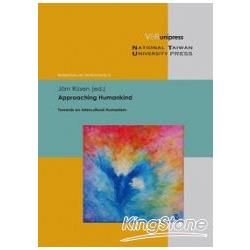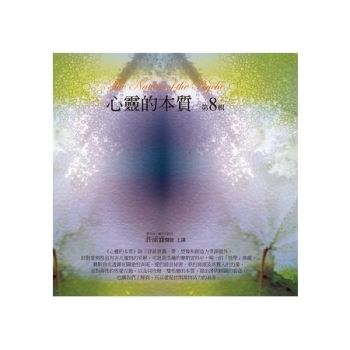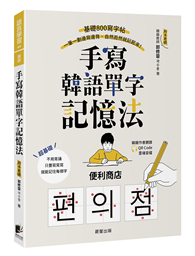Every human life form encapsulates an idea of humankind and humanity. Today, this very idea is challenged by the various and diverging needs for cultural orientation in the age of globalization. One of the recent attempts to meet these challenges is provided by a new humanism with an intercultural intent. Such humanism can be conceptualized
only by the collaborative efforts of different academic disciplines at exploring the human being as the gist of what is meant by humanity. Thus, this volume explores the pertinent fields of knowledge from the perspectives of philosophy, theology, anthropology, sociology, economy, psychology, neurobiology, history, and gender studies. Focusing on the guiding question of what is meant by being a human, the contributions of this volume encompass a fascinating spectrum of insights, which will orientate future discussions on humanity and humanism.
作者簡介:
Jörn Rüsen
Senior Fellow at the Kulturwissenschaftliches Institut (Institute for Advanced Study in the Humanities) at Essen, Germany; Professor emeritus for General History and Historical Culture at the University of Witten/Herdecke, head of the research project (2006 –2009) on “Humanism in the era of globalisation – an intercultural dialogue on culture, humanity, and values” at the Kulturwissenschaftliches Institut in Essen.
作者序
This book has come into existence as part of a project on “Humanism in the Era of Globalization, an Intercultural Dialogue on Humanity, Culture and Values”. The project was carried out with the financial support of the Mercator Foundation, at the Kulturwissenschaftliches Institut (Institute for Advanced Study in the Humanities) in Essen (KWI) during the years 2006 to 2009 and has resulted in a considerable number of publications. Some texts from the German collections of essays dealing with the central aspects of the project are in this volume made accessible in English translations. The editor hopes that this will advance the cause of the international as well as intercultural work in the topic of humanism.
When the project was initiated, the topic of humanism was of no particular relevance in the humanities and appeared to be only of interest to experts on Western cultural history. The intercultural widening of the scope of a not irrelevant theme in Western cultural history was not being considered at the time. This has changed over the last few years, not least of all since this research project has spawned other projects with different affiliations as regards the institutions or the individuals involved, which are specifically concerned with the intercultural
dimension. Occasionally there is even mention made of a ‘humanistic turn’ in the humanities. In this respect the book might meet with a growing interest in the theme of humanism and contribute to providing a stimulus for new approaches to the topic through the results of the older project.
I would like to thank the Mercator Foundation for funding the project, the Institute for Advanced Study in the Humanities in Essen for its institutional support and the Berendel Foundation for financially supporting further research and publication ventures dedicated to humanism, in an intercultural perspective.
A special thanks go to Erhard Reckwitz and Shari Gilbertsen for their empathetic and competent translation. Thanks are also due to the authors who have gone to the trouble of reducing their texts to the limitations that were unavoidable in view of the wealth of material. I am also grateful that instead of translations of existing texts new texts could be admitted that the authors have made available instead of the ones originally envisaged. My special thanks are due to Sorin Antohi for his untiring effort on behalf of numerous projects on humanism and for his friendship while we jointly initiated and completed some of them.
I would like to give my express thanks to Angelika Wulff for her competent and tireless effort in completing the manuscripts and the editing of the book. Finally thanks are due to the colleagues from the publishing housewhich, thanks to its series “Reflections in (In)Humanity”, has provided a site for research for humanism within the international landscape of the humanities.
Bochum, January 2013 Jörn Rüsen
This book has come into existence as part of a project on “Humanism in the Era of Globalization, an Intercultural Dialogue on Humanity, Culture and Values”. The project was carried out with the financial support of the Mercator Foundation, at the Kulturwissenschaftliches Institut (Institute for Advanced Study in the Humanities) in Essen (KWI) during the years 2006 to 2009 and has resulted in a considerable number of publications. Some texts from the German collections of essays dealing with th...
目錄
Preface
Jörn Rüsen
Introduction: Enquiring about Mankind
I. Foundations
Gerald Hüther
Neurobiological Approaches to a Better Understanding of Human Nature and Human Values
Christoph Antweiler
Pan-cultural Universals–a Foundation for an Inclusive Humanism
Georg W. Oesterdiekhoff
Man on the Way Towards Intellectual Growth and Humanity–Anthropological Foundations of History and Social Change
II. Cultural Manifestations
Hubert Cancik
Europe – Antiquity – Humanism
Heiner Roetz
Confucian Humanism
Umesh C. Chattopadhyaya
Indian Humanism
Jörn Rüsen
Classical Humanism – a Historical Survey
Oliver Kozlarek
Man and World in Latin American Humanism
III. Current Issues
Günter Dux
Humanism and Its Interpretation in Secular Modernity – The Responsibility of Politics for Enabling a Humane Form of Life
Ilse Lenz
Differences of Humanity from the Perspective of Gender Research
Jürgen Straub
Personal Identity : A Concept in Humanist Tradition?
Helwig Schmidt-Glintzer
Chances for a Global Humanism in the Conflict of Cultures
Notes on Contributors
Bibliography
Preface
Jörn Rüsen
Introduction: Enquiring about Mankind
I. Foundations
Gerald Hüther
Neurobiological Approaches to a Better Understanding of Human Nature and Human Values
Christoph Antweiler
Pan-cultural Universals–a Foundation for an Inclusive Humanism
Georg W. Oesterdiekhoff
Man on the Way Towards Intellectual Growth and Humanity–Anthropological Foundations of History and Social Change
II. Cultural Manifestations
Hubert Cancik
Europe – Antiquity – Humanism
H...

 共 5 筆 → 查價格、看圖書介紹
共 5 筆 → 查價格、看圖書介紹











